The £350,000 cost of sending your child to private school
Anyone wishing to give their children a private education faces paying nearly twice as much as they would have a decade ago.
The cost of sending a child to day school for their entire school life from this year could come to about £350,000 by the time they are 18, according to the private bank Weatherbys. That is 80 per cent higher than the £194,000 it would have cost for someone who started school in 2010 and finished their A-levels this summer.
Maxwell Marlow from the Adam Smith Institute, an economic think tank, said: “This is a stark increase and we could see private schools become more elitist. My concern is that those on lower incomes and those who haven’t been able to save as much will be priced out.”
Private school costs will rise when the government adds 20 per cent VAT to school fees from January. Some schools do not intend to pass all the VAT cost on to parents because they expect to be able to reclaim it on some expenses and to cut running costs. The Girls’ Day School Trust, which represents 23 private schools in England, told parents this week that fees would go up 12 per cent in January.
But other schools will pass on the full VAT cost. Eton has told parents they will have to pay the 20 per cent increase when VAT is added in January which would mean the boarding school fees rise to £63,000 a year. It said pupils who are funded by bursaries would not be affected and urged parents struggling to cover the cost increase to contact the school. In 2015, Eton’s annual fees were £34,000.
• Two Scottish private schools close citing Labour VAT plan
The government also plans to scrap business rate relief for private schools. Some 7 per cent of pupils in Britain, about 570,000, are educated at private schools.
“Some schools will be able to absorb part of the extra cost, but others will have no choice but to pass on the full 20 per cent increase to parents,” said Julie Robinson, from the Independent Schools Council. “We are already hearing stories of parents facing the prospect of moving their children mid-year, not being able to find local state provision or relying on loans to mitigate the effects of VAT on their fees.”
• Parents scramble to find state school places to avoid VAT on fees
Sending a child to boarding school could come to £694,400, Weatherbys said, up from £392,300 for someone who finished their A-levels this year. Weatherbys assumed that the child was a day school pupil from five, started boarding at seven and left school at eighteen and that inflation would be 2 per cent a year. It factored in the full cost 20 per cent VAT increase from January. The calculations do not include the extra cost of uniforms, sports kits, school trips abroad and music lessons, which can come to thousands of pounds.
“The dream of private education is slipping further out of reach for many families,” said Megan Rimmer from the wealth management firm Quilter Cheviot. “Wage growth has lagged behind inflation, which means school fees and the cost of living has risen more rapidly than many salaries. Some families are relying on grandparents to help, raiding their savings or are pulling their children out of private education.”
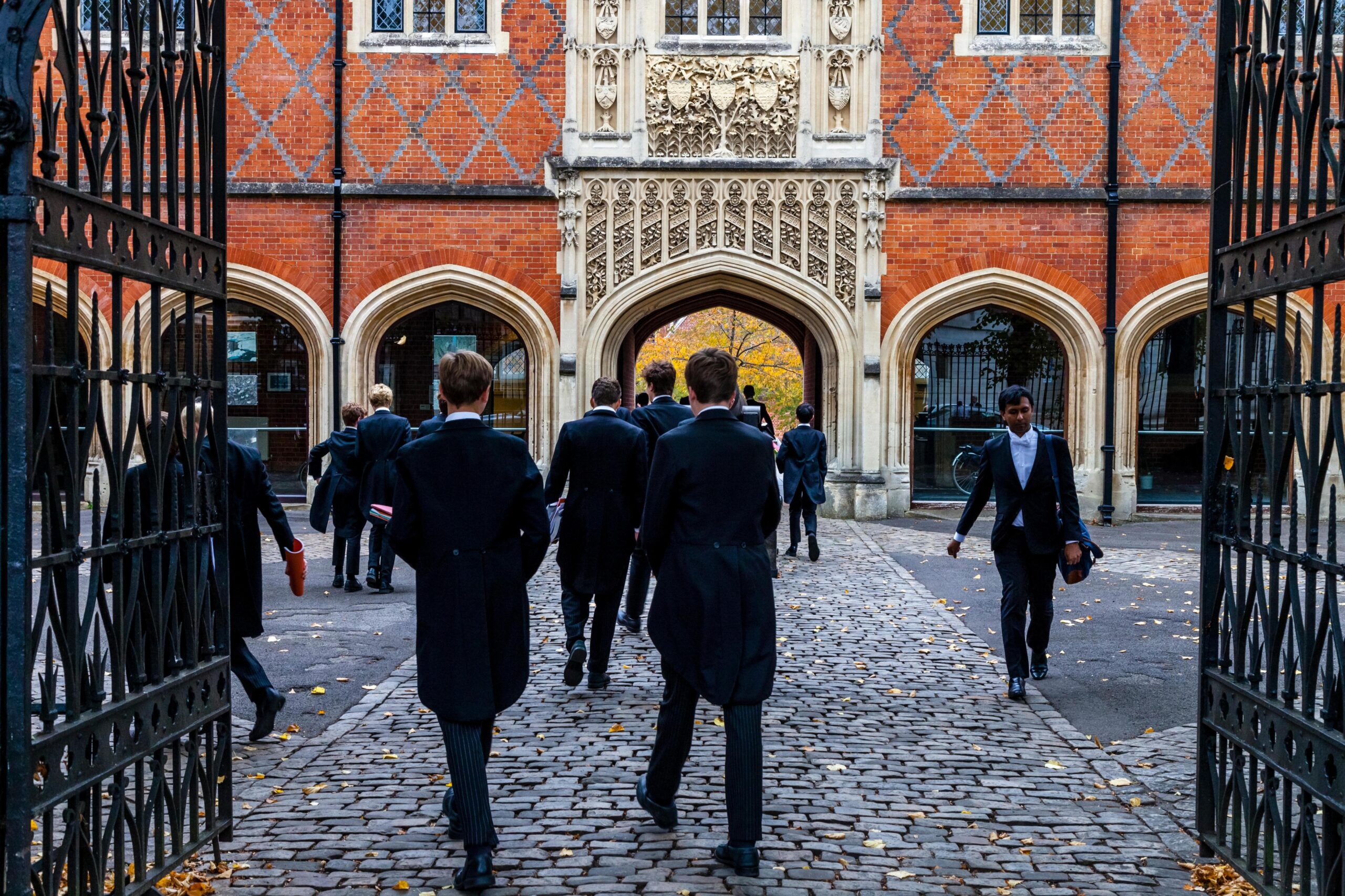
The costs
Average boarding school fees are £14,153 a term for boarders and £7,975 a term for day pupils, according to the Independent Schools Council. Private day schools charge an average of £6,021 a term.
But there is a vast gulf between the cheapest and most expensive private schools.
Pupils who board at Eton will pay £17,583 this term. Those at Harrow will pay £17,850 and final year sixth form pupils at Brighton College will pay £18,490. Fees for day pupils at St George’s School in Edgbaston, Birmingham, are between £1,960 and £3,950 this term depending on their year. King of Kings, a Christian school in Salford, costs £1,500, while the Cambridge Street School, which is an Islamic faith school for boys aged 11 to 16 in Batley, West Yorkshire, is £700.
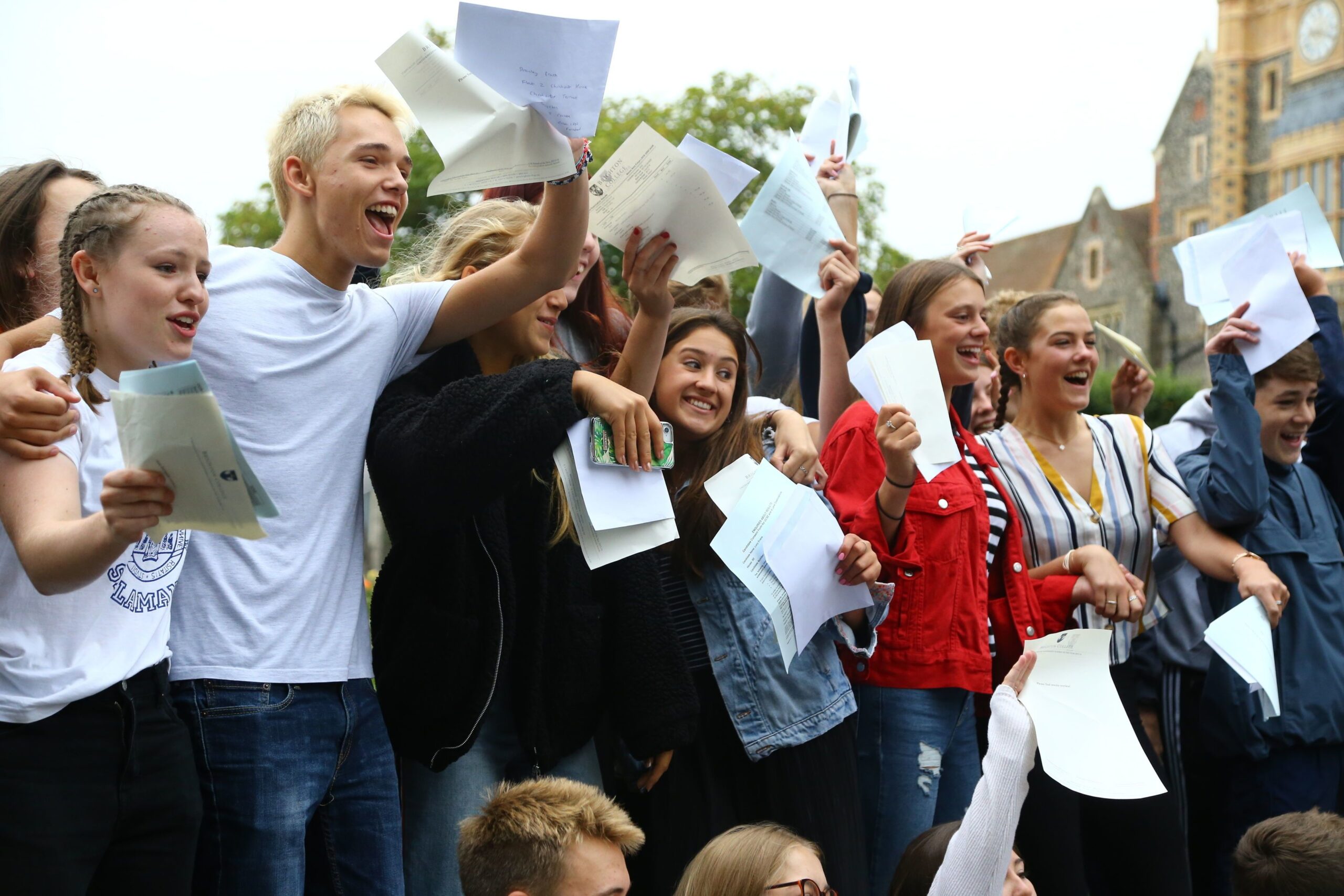
The salary
Quilter found that a couple would need to earn at least £102,000 a year to be able to send two children to a private day school, assuming that fees go up 20 per cent in January.
The calculations assumed that two parents earning £51,000 a year each would be left with a total of £76,500 after tax and a 5 per cent pension contribution, which would allow them to pay £43,350 a year in private day school fees; spend £15,100 a year on their mortgage; and about £18,000 on other living costs such as groceries, eating out and holidays. Many parents will, however, have higher mortgage costs.
Parents would need to earn £208,000 between them to pay the £102,000 average annual cost of sending two children to boarding school. This was 80 per cent higher than the £116,000 they would have needed 14 years ago, Quilter said.
A sole earner would need a salary of £245,000 to send two children to boarding school and cover costs, Quilter said. They would need more because they would lose more of their income to tax.
Carl Green from the wealth management firm Evelyn Partners said: “Almost every client I have who has young children and is considering private school is a lawyer, banker or in private equity. Parents who don’t fall into those categories and send children to private school are being helped by grandparents. There’s no way they could afford it on their own.”
More families could be pushed out of private education as a result of the mounting costs. About 7 per cent of pupils in Britain, about 570,000, are educated at private schools. The Institute for Fiscal Studies (IFS) estimated that if schools passed on a fee increase of 15 per cent to parents when VAT was applied, pupil numbers would drop between 3 and 7 per cent within ten years.
Luke Sibieta from the IFS said: “It’s likely that most families won’t change their minds about sending children to private school if they are already there, but will try to cut back on expenditure elsewhere. We are likely to see more parents not sending children to private school in the first place.”
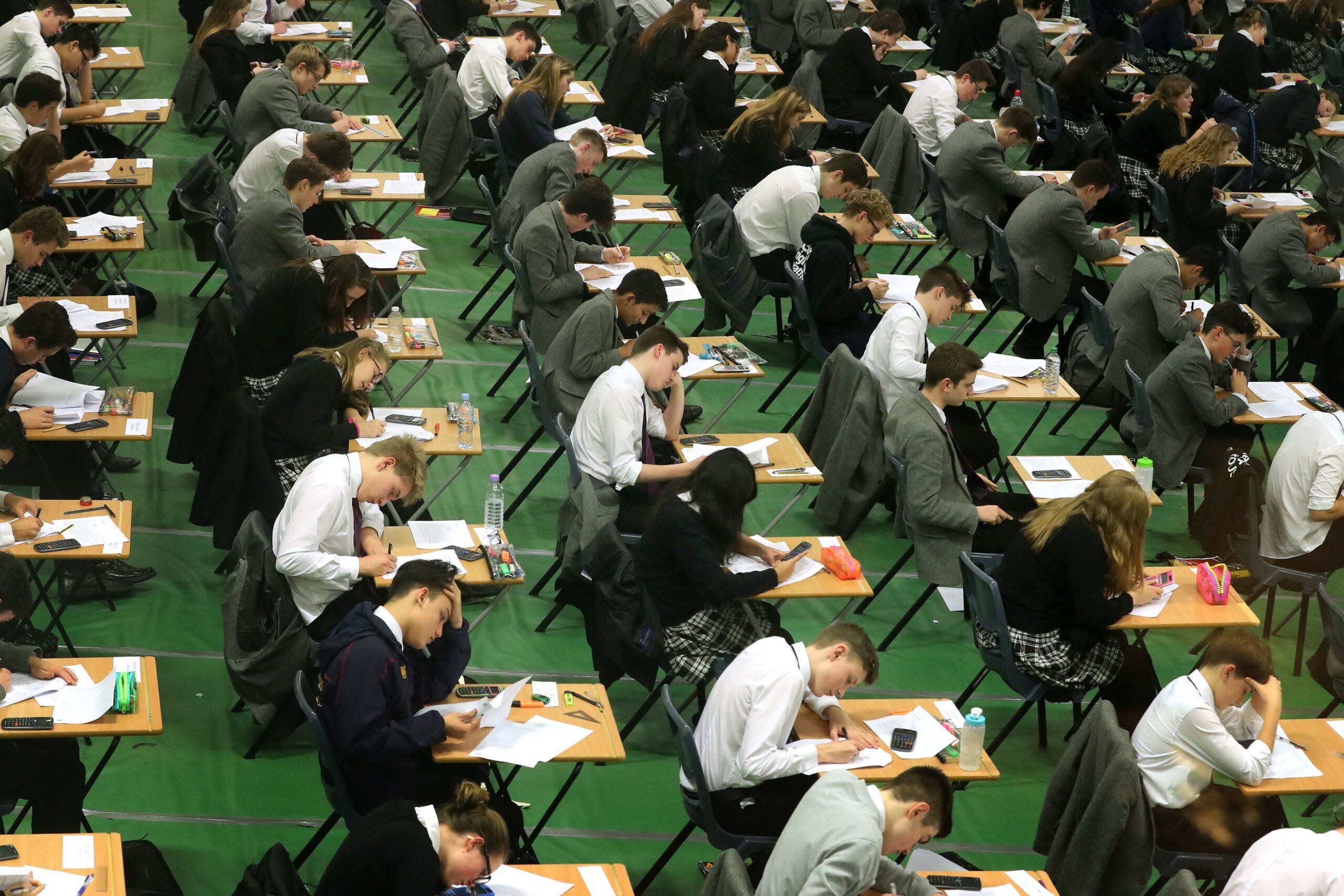
Private schools have been trying to attract more students from abroad as they prepare for the fee increases. Only 4.7 per cent of pupils at private schools in the UK are not British and have parents living in another country, according to the Independent Schools Council, up marginally from 4.5 per cent in 2010.
Charles Bonas from Next Step Education, which runs boarding school shows in London, Singapore, Dubai, Hong Kong, Geneva and Monaco, said that more schools were trying to attract international pupils through school fairs and agents. He added: “Many young people from the UK who have been privately educated have not got on to the property ladder and now don’t have sufficient wealth to send their own children.”
The alternative
Krisha Davies and her husband, Ryan, say they have been priced out of private education. She has happy memories of her private school but will not be sending her two children. “I had great friends, great teachers and I enjoyed learning. We had sports fields, music rooms, lunchtime clubs and after-school clubs like dancing and choir,” said Davies, 38, who runs a maternity wear business called Super Mumma. “I can’t afford to send my kids to private school. We wouldn’t do it for one if we couldn’t do it for both.”
The couple have daughters aged nine and six. “We are really lucky to have an amazing state primary school near where we live,” she said. Her mother was a nurse and her father was the chief executive of a charity. “They had to budget to allow me to go to private school. We didn’t go on holidays abroad,” Krisha said.
The action plan
Parents wanting to send their children to private school may be wise to start saving early. You can save up to £20,000 a year into a cash or stocks and shares Isa where any growth will be tax-free.
Weatherbys said that investing £1,666 a month (£20,000 a year) in an Isa for the five years before a child starts school could give a fund worth about £109,920. It assumed your investments would grow 5 per cent a year after fees. Setting aside £1,666 a month for ten years before a child started school could give £242,050, it said.
Going private for part of a child’s education could also make a big difference. Weatherbys estimated that it would cost £306,297 to send a pupil to a private boarding school between years 7 and 11. It would cost £149,048 if you sent them to a private day school.
Green said grandparents often set up bare trusts for their grandchildren because this can be a tax efficient way to help cover the cost of their school fees.
Unlike with other trusts, the beneficiary of a bare trust (the grandchild) has an automatic right to what is held in the trust. They would not be able to access the assets in the trust until they turned 18, but money could be withdrawn on their behalf by a trustee to cover school fees. Anything withdrawn from the trust is taxed as if the child owned it, so their capital gains tax and income tax allowances could be used to save tax. Different rules apply if a parent sets up a bare trust for their child, so experts normally recommend that a grandparent does it.
Many schools allow parents to pay fees years in advance, which means they could lock in lower fees. This won’t help them to avoid a VAT increase, though — Labour had said that the VAT charge would also apply to prepayments made after July 29 this year.
The sacrifices
Ndah Mbawa, from Northampton, has been cutting back on family holidays abroad, takeaways and the cost of her weekly grocery shop so that she can afford the rising costs of private school.
“It’s so difficult financially. It’s tough paying the bills and the mortgage and we had the cost of living crisis on top of that. The VAT increase isn’t going to break the bank but it’s a tough ride,” said Mbawa, who runs Happier Every Chapter, an independent bookshop and subscription service.
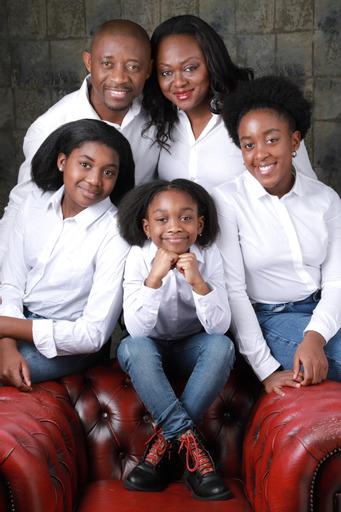
Mbawa and her husband, Valentine, both 46, plan to send their three daughters to private school for part of their education. Kirsten, 16, has just finished her GCSEs at a private school she went to for five years; Aiyven, 15, is at the same private school; and Kaitlyn, nine, is at a local state school. Kirsten has a partial scholarship to go to a private sixth form and this term’s fees will be £3,600. The plan is to send Kaitlyn to private school when she turns 12.
Aiyven’s school is part of the Girls’ Day School Trust and its fees will go up 12 per cent in January, from £5,976 a term to £6,693. “The school is planning to absorb some of the charges when the VAT increase comes in, but it is still a substantial hike,” Mbawa said.
“My husband and I both went to private school in Cameroon. There is a lot that comes with a private school education. The exposure is great for the children, the trips they go on, the sports they do, smaller class sizes and academic standards are really high,” Mbawa said. “They say it takes a village to raise a child and for me the teachers and the school are part of that village.”

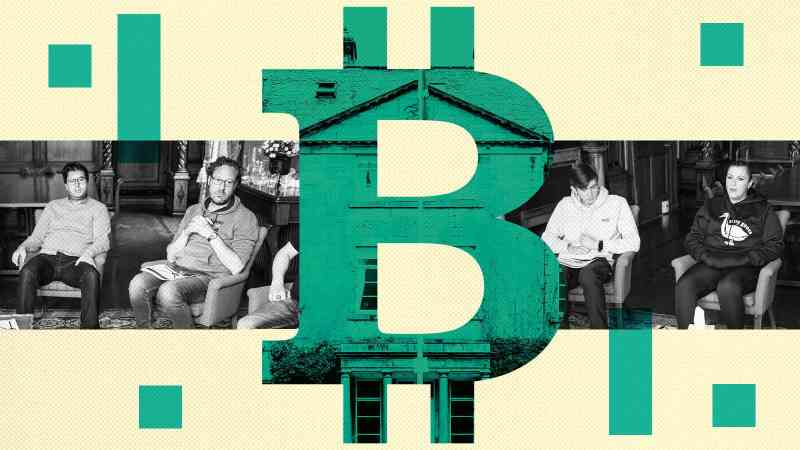
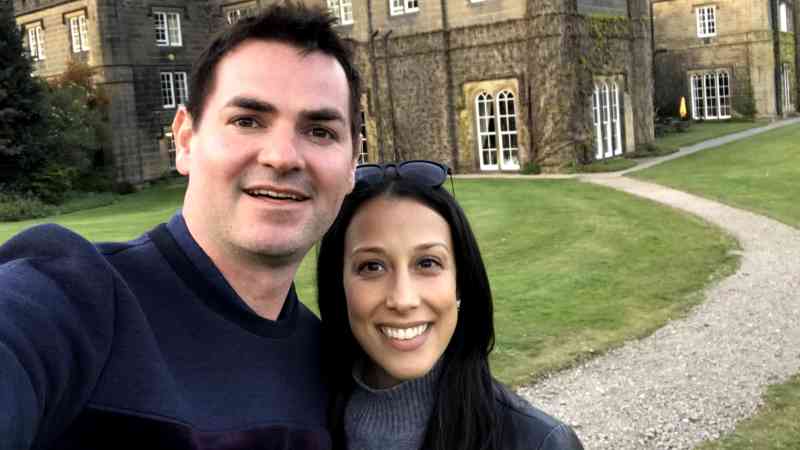

Post Comment